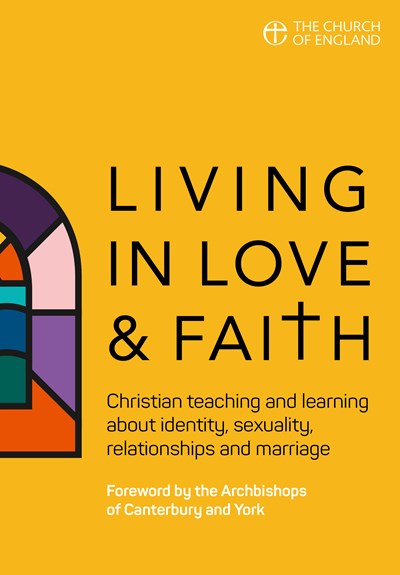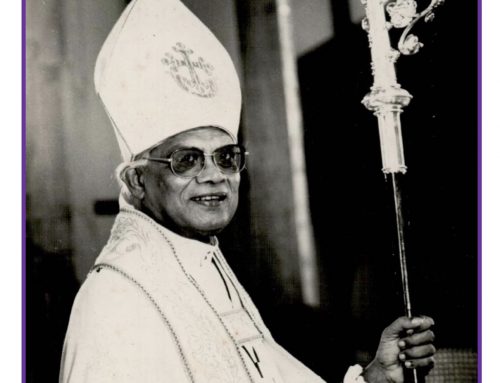Recent debates on same-sex partnerships – Part one of a two-part study
Recent debates on same-sex partnerships – Part one of a two-part study
The Rev’d Jonathan Clatworthy

Jonathan Clatworthy is a liberal Christian theologian and blogger, and trustee of Modern Church. He has been a parish priest, university chaplain and tutor in theology, philosophy and ethics. His main research interest is the relationship between monotheism and ethics. See: https://www.clatworthy.org
Yes, the Church of England is still arguing about same-sex partnerships.
On 18th January 2023 the House of Bishops announced their proposals for change, to be debated at the February session of General Synod.
They publicly apologise
to LGBTQI+ people for the “rejection, exclusion and hostility” they have faced in churches and the impact this has had on their lives.
They offer new prayers:
Same-sex couples would still not be able to get married in a Church of England church, but could have a service in which there would be prayers of dedication, thanksgiving or for God’s blessing on the couple in church following a civil marriage or partnership.
Actually, blessings on such couples in churches have been happening up and down the country already. So, there’s nothing new here. Well, maybe there is. The implication that the House of Bishops had previously forbidden such blessings will be news to many.
Why is this one issue so important to church leaders when most people don’t care?
Clobber texts
Opponents of same-sex marriage usually appeal to the biblical texts condemning same-sex sexual activity. Realistically there are five, though some argue for seven or even eight. Apart from the questions about the meanings of each text, two others puzzle onlookers. Firstly, why make such a song and dance about those texts when the Bible contains many hundreds of other commands that Christians regularly disobey? Secondly, why assume that these commands are binding on all people at all times?
Those committed to opposing same-sex marriages can, of course, offer answers; but the answers don’t seem at all convincing to those who don’t belong in their bubble.
The need to be different
Still, there must be a reason. A large part of it, I suspect, is the need to feel different. In my days as a university chaplain, I used to talk to undergraduates about their experiences. At the age of eighteen they leave home and are plunged into a new world full of other people their own age or a little older. Suddenly nobody is making sure they are home by midnight. Nobody is limiting their use of alcohol, drugs or sex. Nobody is providing cooked meals or washing their clothes. The intensity of the new situation can be liberating, challenging or threatening. Some throw themselves into their new life with delight. Others can’t cope and go home, or commit suicide. Others again are rescued by a new order of discipline, forbidding potentially harmful actions.
This is the point at which student-led religious groups like Christian Unions perform a saving role. Unfortunately, the salvation comes at a price. The discipline works by persuading the student to adopt a distinct identity. As Christians, individuals are to think of themselves as quite unlike the non-Christians around them. They now belong to a counter-cultural clique with clear dividing-lines between those who are in and those who are out.
This black-and-white divisiveness usually doesn’t survive the student experience. However enough of it survives, in enough graduates, to explain the dominance of divisive Christianity in the lightweight Evangelicalism that has been so dominant in recent decades.
As a result, there is a constant need to show how they are different. The cheapest way to do this is to join a campaign against some commonly accepted feature of the wider society. Whether one opposes evolution, or abortion, or interfaith dialogue, the point is to do it as a Christian. As same-sex partnerships became a hot potato, they fitted the bill best of all.
Lambeth conferences and primates’ meetings
By 1997, when Anglican conservative evangelicals met in Kuala Lumpur planning how to maximise their impact at the following year’s Lambeth Conference, same-sex partnerships were the obvious choice of issue. This way, otherwise fissiparous evangelicals could be united against the big bad world outside. They succeeded. At the 1998 Lambeth Conference, Resolution 1.10 agreed to refer to ‘homosexual practice as incompatible with Scripture’. This has been the dominant issue in Anglican politics ever since.
The main tactic has been to threaten schism unless the Anglican Communion’s leadership taught their views and opposed alternatives. In 2002 it sprang to life.
Looking back, how it started seems astonishing now. As the Archbishop of Canterbury, George Carey, retired the Prime Minister, Tony Blair, was minded to appoint Rowan Williams to succeed him. The decision was leaked in advance, probably because Blair wanted to assure himself that the appointment would be acceptable. Was there any opposition? Not a squeak.
So, the appointment was formally announced. And then: boom! Immediately there appeared a well-prepared, well-publicised campaign to prevent him taking up the post. Week after week the Church of England Newspaper printed a massive headline ‘Crisis in the Church’.
Williams did become Archbishop, but the fury continued. A Primates’ Meeting was held in October 2003. By then the Canadian Diocese of New Westminster had authorised a liturgy for blessing same-sex relationships and Gene Robinson, who openly admitted to being in a gay relationship, was elected Bishop of New Hampshire in the USA. The Primates’ Meeting reaffirmed the Lambeth Conference 1998 Resolution, adding that
we deeply regret the actions of the Diocese of New Westminster and the Episcopal Church (USA) which appear to a number of provinces to have short-circuited that process, and could be perceived to alter unilaterally the teaching of the Anglican Communion on this issue. They do not. Whilst we recognise the juridical autonomy of each province in our Communion, the mutual interdependence of the provinces means that none has authority unilaterally to substitute an alternative teaching as if it were the teaching of the entire Anglican Communion.
In fact, the North American churches had in no way sought to impose their views onto Anglicans in North America, let alone anywhere else. On the contrary, they were simply making use of their traditional autonomy.
So why make such an odd claim? In this statement we can see the Primates beginning to treat the Anglican Communion as though it were a single confessional church where everybody is expected to believe the same thing.
The Anglican Covenant
Accordingly, the Primates’ Meeting authorised a Commission, which duly produced The Windsor Report in 2004. It proposed an Anglican Covenant which would ‘make explicit and forceful the loyalty and bonds of affection which govern the relationships between the churches of the Communion’ (§118). It seemed that we were not only to have affection for each other: we would be forced to have it.
From then until 2012 the issue was kept in the public eye by successive drafts of the proposed Anglican Covenant. The wording had to serve two contrasting purposes. Church leaders who were keen to ‘discipline’ the North Americans wanted powers to expel them from the Anglican Communion. On the other hand, the Covenant could not be presented as simply an opportunity for archbishops to bully each other. Until they joined, the provinces were autonomous. They could not be forced to join. Joining had to appear attractive and harmless.
The Covenant was therefore presented as turning the Anglican Communion into a two-tier structure, with the uncovenanted provinces effectively demoted. As the final text put it,
Recognition of, and fidelity to, the text of this Covenant, enables mutual recognition and communion (§4.2.1).
The message could not have been clearer: mutual recognition and communion would no longer be extended to Anglican provinces which did not sign it. This would have been a major change: an officially organised schism, introduced – well, actually, in order to avoid the schism being threatened.
In any case the threats continued. The most significant was the GAFCON conference timed to coincide with the 2008 Lambeth Conference. This was a deliberate snub to Archbishop Williams, as bishops would not be able to attend both conferences.
Eventually, in 2012 a majority of diocesan synods in England rejected the Covenant. The subsequent GAFCON Conference (2013) produced a statement rubbing salt into the wound. It speaks of a ‘false gospel’ which
undermined the authority of God’s Word written. It sought to mask sinful behaviour with the language of human rights. It promoted homosexual practice as consistent with holiness, despite the fact that the Bible clearly identifies it as sinful…
It describes their
willingness to submit to the written Word of God and our unwillingness to be in Christian fellowship with those who will not… This means that the divisions in the Anglican Communion will not be healed without a change of heart from those promoting the false gospel…
We urge those who have promoted the false gospel to repent of their unfaithfulness and have a renewed confidence in the gospel.
Epistemology
The debate reflects a disagreement that has characterised Protestantism since the sixteenth century. Fundamentally it is about how we search for truth in matters of faith: epistemology.
One theory treats the Bible as supreme. It is God’s revelation. Mere human reason is never adequate to question it. Therefore:
- The Bible’s truths can be known with absolute certainty, transcending anything the human mind works out for itself. We should not attempt to interpret the Bible: we should just accept what it says.
- Christian truths are limited to what is in the Bible. New information on matters of faith must be wrong unless it can be deduced from the Bible.
- Moral commands are to be accepted purely because God so decrees in the Bible. Since God’s commands are known quite independently of our own well-being, it’s not at all surprising if our desires conflict with God’s commands.
In the sixteenth century these principles were spelt out clearly. For many, they were the ‘common sense’ of the time. Today they are modified in various ways, but they remain the logic behind the claim that a biblical text can answer today’s questions with certainty – so once the ‘biblical’ answer is established, there is no more to discuss. For such people, biblical texts function as the full stop replacing every question mark. This is the position illustrated by the GAFCON statements cited above. It is often echoed today by opponents of gay marriage, though usually in a softer voice.
The other theory is more confident about the power of human reason. Evidence-based research drives our search for knowledge, independently of the Bible and traditional church doctrines. Just as medical researchers disagree with each other about cures for Covid and archaeologists disagree about the latest discoveries, it is entirely proper for scholars to debate the meanings of biblical texts. Scripture, tradition and reason (some add experience as a separate category) balance each other. No one source of information is infallible, so we use whatever informs us. This is the approach which a long theological tradition, from Richard Hooker to Henry McAdoo, describes as Classic Anglicanism.
It is a tragedy that the leaders of Anglicanism are no longer committed to it. If they were they could have insisted that Christianity is not, and never has been, an unchanging monolith. No dogma, no text, is God’s command to everyone at all times. Only God is infallible.
Instead of those anti-rational claims about the Bible, Classic Anglicanism can offer the methods of reconciliation that are normal outside ecclesiastical debate:
- Disagreeing is normal.
- Nobody knows, or needs to know, everything
- Nobody knows anything with absolute certainty. Every truth, however well established, can in principle be questioned if there is good enough reason to question it.
These contrasting approaches are often called ‘conservative’ and ‘liberal’, though neither word is a good descriptor.
Currently the contrast is being expressed in the debate over same-sex marriage. The leadership of the Church of England has been careful not to come down on one side or the other. It has attempted to calm down the temperature with odd-sounding terms like ‘good disagreement’ and ‘facilitated conversations.’ It has produced official reports pitched to be equally unsatisfactory to both sides.
Eventually, no doubt, this policy will succeed, as eventually everybody will be utterly fed up of the debate. The success will be at a high price, as more and more people are turning their backs on a church perceived as homophobic and therefore immoral.
My fear is that this strategy will leave untouched the underlying reason for the conflict. It will do nothing to break down the barriers set up by those who see the world in black and white and are determined to impose uniformity of belief on their dominant issue. Such schismatics can always switch to a different campaign – maybe against interfaith dialogue or abortion. It will be a great relief to LGBT people, but at the expense of some other group.
Conclusion
I therefore believe the Church of England’s leadership is trying to do the impossible. No institution can be run on the basis of the two competing epistemologies we have inherited from the Reformation. Either it can be run on the basis that biblical texts, read literally, determine what all true Christians must believe, or it can be run on the ‘classic Anglican’ basis in which the Bible, the Christian tradition and the reasoning powers of the current Church all play a part. It is impossible to run the same church in both ways at once. What the Church of England needs now is not better management techniques or better reconciliation processes, but better theology.
Candlemas 2023






